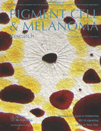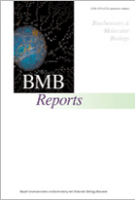
Pigment Cell & Melanoma Research
metrics 2024
Fostering Collaboration in Pigmentation Research.
Introduction
Pigment Cell & Melanoma Research is a premier journal published by Wiley that serves as a vital resource for researchers, professionals, and students in the fields of biochemistry, genetics, molecular biology, dermatology, and oncology. With its ISSN of 1755-1471 and E-ISSN 1755-148X, the journal is recognized for its impactful contributions to advancing our understanding of pigment cells and melanoma, particularly from 2008 to 2024. The journal currently holds a commendable Q1 ranking across major categories, including dermatology and oncology, and demonstrates an impressive 96th percentile ranking in the field of medicine’s dermatology category. While the journal is not open access, it offers researchers valuable insights into the latest findings and innovations in skin biology and cancer research. By publishing rigorous peer-reviewed articles, Pigment Cell & Melanoma Research aims to foster collaboration and education within the scientific community, making it an indispensable tool for anyone dedicated to the study of pigmentation disorders and melanoma.
Metrics 2024
 1.45
1.45 3.90
3.90 3.60
3.60 120
120Metrics History
Rank 2024
Scopus
IF (Web Of Science)
JCI (Web Of Science)
Quartile History
Similar Journals

FEBS Journal
Your Gateway to Cutting-Edge Research in Life SciencesFEBS Journal is a prestigious, peer-reviewed publication dedicated to advancing the field of biochemistry, cell biology, and molecular biology. Published by WILEY in the United Kingdom, this journal boasts an impressive impact factor and ranks in the top quartile (Q1) across multiple relevant categories, including Biochemistry, Cell Biology, and Molecular Biology, reflecting its significant contribution to scientific research. With an ISSN of 1742-464X and an E-ISSN of 1742-4658, the FEBS Journal publishes original research and comprehensive reviews that push the boundaries of knowledge and innovation in the biosciences. As a vital resource for researchers, professionals, and students alike, the journal offers Open Access options, ensuring that cutting-edge discoveries are accessible to a broad audience. With a publication history converging from 2005 to the present and a robust emphasis on high-quality scholarly work, the FEBS Journal remains an essential platform for the dissemination of significant findings and advancements in the life sciences.

EXPERT REVIEWS IN MOLECULAR MEDICINE
Cutting-edge Reviews from Leading ExpertsEXPERT REVIEWS IN MOLECULAR MEDICINE, published by Cambridge University Press, stands at the forefront of research in the fields of Molecular Biology and Molecular Medicine. With an impressive impact factor reflecting its Q1 status in both relevant categories, this journal serves as an essential platform for disseminating cutting-edge reviews and critical assessments that are vital for advancing our understanding of molecular mechanisms in health and disease. Established in 1997 and continuously evolving until 2024, it features contributions from leading experts that highlight emerging trends and innovative methodologies. Researchers, professionals, and students are encouraged to engage with the content, benefiting from the journal’s rigorous peer-review process and its commitment to academic excellence, making it a valuable resource within the scientific community.

Advances in Cancer Biology-Metastasis
Exploring the Frontiers of Cancer Biology.Advances in Cancer Biology-Metastasis is an emerging journal published by Elsevier, aimed at advancing our understanding of the complexities of cancer biology, with a specific focus on the mechanisms and pathways related to metastasis. With an E-ISSN of 2667-3940, this journal offers a platform for researchers, professionals, and students in the fields of Cancer Research and Cell Biology to disseminate innovative findings and discuss novel therapeutic approaches. Though currently classified in the Q4 quartile across both Cancer Research and Cell Biology categories, the journal aspires to enhance its impact through rigorous peer review and high-quality publication. Positioned to cover the years from 2021 to 2024, it seeks to bridge gaps in foundational knowledge and promote collaborative research efforts that could pivot the current understanding of cancer metastasis. Researchers are encouraged to take advantage of this platform to advocate for advancements in cancer biology, making significant contributions that can influence both academic and clinical practices.

FASEB BioAdvances
Transforming Insights into Impactful ResearchFASEB BioAdvances, published by WILEY, is an esteemed open-access journal dedicated to advancing the fields of biochemistry, molecular biology, and physiology. Since its inception in 2019, the journal has rapidly established a significant presence within the academic community, boasting an impressive impact factor reflective of its Q2 and Q3 standings across various categories, including Biochemistry, Genetics and Molecular Biology, Cancer Research, Molecular Medicine, and Physiology. The journal aims to disseminate high-quality research and innovative findings to enhance the understanding of biological processes, making it a vital resource for researchers, professionals, and students alike. With its commitment to open access, FASEB BioAdvances ensures that groundbreaking research is available to a global audience, facilitating collaboration and exploration in these rapidly evolving scientific domains.

BMB Reports
Fostering Dialogue in Biochemical InnovationBMB Reports is a distinguished open-access journal published by the Korean Society of Biochemistry & Molecular Biology since 2008, making significant contributions to the fields of biochemistry, molecular biology, and medicine. With a current impact factor that positions it in the Q2 category for Biochemistry and Q1 for Miscellaneous Medicine, this journal supports a wide dissemination of high-quality research findings, fostering robust dialogue among researchers, professionals, and students alike. Based in Seoul, South Korea, BMB Reports aims to publish innovative studies that advance our understanding of biochemical and molecular processes, thus shaping the future of health and medicine. The journal's commitment to open access enhances the visibility of its articles, allowing for greater accessibility and engagement in the scientific community. With notable rankings in both the Biochemistry and Molecular Biology categories, BMB Reports stands as a vital resource for those seeking to stay at the forefront of research in these rapidly evolving disciplines.

NEOPLASIA
Exploring the frontiers of cancer research and therapy.NEOPLASIA is an esteemed open-access journal dedicated to advancing the field of oncology, published by Elsevier Science Inc. since 1999. With an impressive impact factor and recognition as a Q1 journal in Cancer Research for 2023, it holds a significant position within the scientific community, specifically ranking in the 74th percentile globally in the categories of Biochemistry, Genetics, and Molecular Biology. NEOPLASIA seeks to provide a comprehensive platform for innovative research, covering a wide array of topics in cancer biology, treatment methodologies, and therapeutic advancements. Researchers, professionals, and students are encouraged to utilize this resource, which is easily accessible to foster collaboration and stimulate progress in cancer research. As it converges its efforts towards the future of oncology, this journal is poised to remain at the forefront of transformative discoveries that shape our understanding and treatment of cancer.

Cancer Cell International
Empowering Discovery in OncologyCancer Cell International, published by BMC, is a transformative open-access journal established in 2001, dedicated to advancing the field of oncology and cancer research. With its ISSN number not specified and an E-ISSN of 1475-2867, the journal proudly operates from the United Kingdom, located at CAMPUS, 4 Crinan St, London N1 9XW, England. Renowned for its rigorous peer-review process, Cancer Cell International has made significant strides, securing a Q2 ranking in Cancer Research and Q1 rankings in both Genetics and Oncology as of 2023. It ranks impressively in Scopus, featuring in the top quintile of Genetics (#37/347) and Oncology (#52/404), indicating its importance within the scientific community. The journal's broad scope caters to a diverse array of topics within cancer biology, making it an invaluable resource for researchers, professionals, and students seeking to stay at the forefront of cancer science. With a commitment to disseminating high-quality research, Cancer Cell International invites scholars to explore innovative findings and contribute to the collective effort of combating cancer.

CANCER CELL
Empowering the Fight Against CancerCancer Cell, published by Cell Press, represents a pinnacle of research in the fields of cancer research, cell biology, and oncology. With an impressive Impact Factor and ranking as Q1 in prestigious categories for both 2023 and previous years, this journal stands out as a vital resource for professionals and scholars dedicated to understanding the molecular underpinnings of cancer. Operating from Cambridge, MA, Cancer Cell has been an essential platform for innovative studies since its inception in 2002. Although it is not an Open Access journal, its rigorous peer-review process ensures that only the highest quality research is disseminated to the scientific community. Readers can expect to find a wealth of knowledge ranging from cutting-edge therapies to insights into tumor biology, thereby contributing significantly to the advancement of oncology. With rankings placing it among the top echelons of related fields—#2 in Cancer Research and #6 in Oncology—Cancer Cell is an indispensable reference for anyone committed to the fight against cancer.

CELLULAR AND MOLECULAR BIOLOGY
Advancing the Frontiers of Life SciencesCellular and Molecular Biology is a prominent academic journal published by C M B ASSOC, specializing in the dynamic fields of cellular and molecular biology. Established in 1977, this journal has consistently aimed to disseminate groundbreaking research that contributes to our understanding of biochemical processes, cell dynamics, and molecular mechanisms governing life. With its ISSN 0145-5680 and E-ISSN 1165-158X, the journal plays a vital role in the exchange of innovative ideas, evidenced by its coverage of research from 1977 to 2024. Although currently categorized in the Q4 quartile for major disciplines such as Biochemistry and Cell Biology, it is dedicated to fostering the development of the field by welcoming submissions that challenge the conventional understanding and lead to novel insights. Researchers and academics looking to contribute to or stay updated in the rapidly evolving landscape of molecular biology will find this journal a valuable resource for connecting with a global community of scientists.

CELL PROLIFERATION
Pioneering Research for a Healthier TomorrowCELL PROLIFERATION, published by Wiley, is a leading open-access journal that has been at the forefront of research since its inception in 1968. With an impact factor that solidifies its position in the Q1 category of both Cell Biology and Medicine (Miscellaneous), this journal serves as a premier platform for disseminating groundbreaking studies in the field of cellular and molecular biology. The journal is renowned for its rigorous peer-review process and comprehensive coverage of topics related to cell growth, division, and differentiation, making it an invaluable resource for researchers, professionals, and students alike. With its notable Scopus ranking of #30 in Biochemistry, Genetics, and Molecular Biology: Cell Biology, and a robust open access model since 2019, CELL PROLIFERATION ensures that cutting-edge research is accessible to a global audience, fostering collaboration and innovation across the scientific community. Located in the United Kingdom, the journal remains committed to enhancing the understanding of cellular processes, thereby influencing developments in medicine and biotechnology.